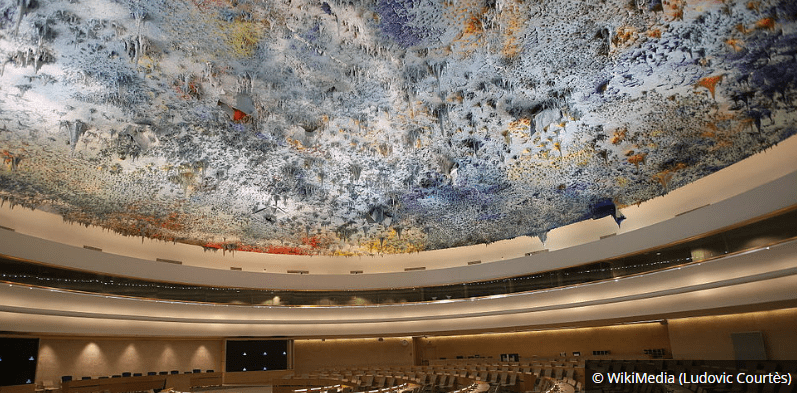
The UN Human Rights Committee (UNHRC) is set to review Pakistan’s human rights record this Thursday and Friday under the International Covenant on Civil and Political Rights (ICCPR). According to Amnesty International (AI), the review “comes at a crucial time for the country, as human rights violations and abuses remain rampant.”
The review is part of Pakistan’s commitments under the ICCPR, which the country ratified in 2010. However, the current human rights situation in Pakistan has drawn increased international attention. Babu Ram Pant, AI’s deputy regional director for South Asia, cites a number of recent violations:
Two blasphemy-related extrajudicial executions by the police, crackdown on protests, enactment of the restrictive Peaceful Assembly and Public Order Act 2024, arbitrary detention and mass arrests of opposition workers and leaders, ban on the Pashtun Tahaffuz Movement, and harassment of human rights defenders like Mahrang Baloch – have all been reported in the duration of past month alone.
AI has submitted its observations to the UNHRC in light of this. The submission highlights the sharp rise in blasphemy-related violence, which has seen individuals accused of blasphemy being attacked or killed without a trial. The non-governmental organization has also condemned Pakistan’s coercive blasphemy laws, calling for urgent reforms.
Pakistan has also faced criticism for its widespread use of military courts to try civilians. The trial of civilians in these courts, particularly after political unrest in May 2023, has raised concerns about the fairness of the judicial process. 85 participants from the May protests remain in military detention, and the case of Idris Khattak, a prominent human rights defender who has been imprisoned for years, remains unresolved.
The UN review mechanism also comes at a time when the Pakistani government has enacted new laws that have further restricted civil liberties. The Peaceful Assembly and Public Order Act, passed earlier this year, has been criticized by AI for curbing the right to protest and imposing harsher penalties on demonstrators.
Another issue expected to be raised during the review is Pakistan’s deportation of Afghan refugees. The UNHCR had previously expressed concern over the consequences of Pakistan deportation orders for Afghan nationals. AI has stated that the move violates the principle of non-refoulement. The deportations have drawn widespread condemnation from around the world, particularly in light of the deteriorating security situation in Afghanistan following the Taliban’s return to power.
The upcoming review nevertheless presents an opportunity for the Pakistani government to address these concerns. AI’s Babu Ram Pant states that the review should serve as a wake-up call for Pakistan’s leadership: “The review presents an opportunity for the Pakistani government to take stock of the state of human rights in the country and implement concrete measures to address the human rights concerns raised during the review.”






